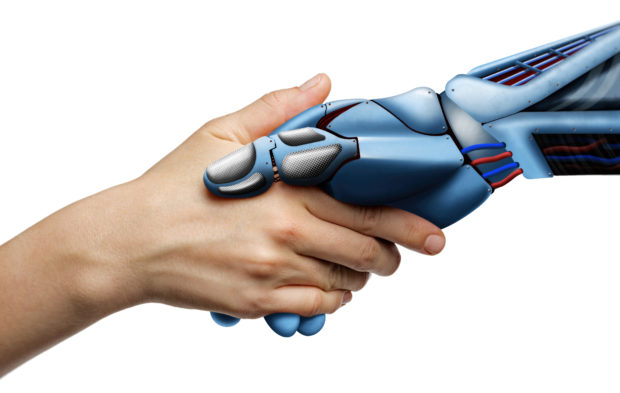For Frank Giaoui, processing insurance claims efficiently isn’t just a part of his business, it’s personal.
“It’s actually an unfortunate experience that brought me into the insurance space where I was myself the victim of an accident that I could barely get any compensation out of in the court,” he said.
This experience fueled his desire to help other insureds get back on their feet after an accident so that they wouldn’t find themselves in such a challenging position. He founded Optimalex, an artificial intelligence powered predictive analytics provider for insurance claims.
“It’s all about transforming time and savings through fair, consistent, and as quick as possible settlements,” said Giaoui, who is Optimalex’s president and founder. “We focus on claims. Today, we are focused on North America casualty claims, so 100 percent of our business is that. We are not working in any other industry.”

While Optimalex was founded in 2020 alongside head of legal Jòan Gondolo, head of engineering Luv Aggarwal, and managing director and chief data officer, Philippe Lachkeur, Giaoui’s personal journey to building the InsurTech began much earlier.
“My background initially was in law and economics. I was a corporate advisor in finance and technology for 25 years. And then after this unfortunate experience, I decided to go back to school,” he said. “I took two degrees in law and economics, completed a PhD at Columbia Law School, and then I discovered that there was a lot to do to essentially rationalize consistent, fair and timely claim settlement.”
He said the company has two value propositions. One is to continue providing claims predictive analytics by combining structured and unstructured data to provide first notification of loss and a fair and consistent prediction of the outcome of a particular case.
“When the claim adjuster has access earlier on to all of this information — the benchmark of the market because we provide our database with millions of data points, the benchmark of their internal practices — all of that combined can help them settle earlier,” he said. “That’s reducing the lifecycle of the claim.”
The other value proposition Optimalex aims to provide is to identify areas within the claims process that can be automated or made more efficient.
“We have identified with our clients the claims that adjusters and managers spend almost half of their time on,” he said. “It can be data collection, data structuring, communication with internal departments, communication with the lawyers, communication with the insurance. Most of that can be automated. We’re not replacing the adjusters, but adding science to the art of their adjusting.”
He said that during the past several years of growing the company, he has learned that one of the biggest challenges for an InsurTech startup is finding initial clients and convincing them of the return on investment.
“[The process] can be very lengthy. I remember the first pilot we signed was almost 18 months before being signed,” he said. “But then the more you progress, the shorter the sales cycle because you have more and more experience to demonstrate the ROI.”
Another challenge is simply navigating an industry that can be slower to embrace change, particularly when it comes to artificial intelligence.
“It’s an industry where you combine the most advanced technologies and analytics with also the most conservative behavior,” he said. “And it’s kind of not surprising, but it’s an interesting combination. Of course, insurance is risk management, so it’s natural that they would not take an initiative to risk something very different.”
However, Giaoui said he has observed a mindset shift happening in insurance recently.
“The chief executive officers and the chief financial officers understand that in order to be low risk, they actually need to implement these technologies,” he said. “It would be risky not to implement them because some competitors have implemented those technologies, so they need to avoid missing out.”
He said he believes the competitive edge AI technologies offer will continue to push insurers to test the waters, and in the future, he hopes to see both AI and human employees working together in insurance.
“I’m looking at some other industries, like for instance, how AI and automation has worked in piloting planes. If you look at that, you know that it is an increase in security in airlines, although it did not replace human pilots so the expertise is still there. If anything, human pilots are much more expert today because they are better trained with all those automated tools,” he said. “So my hope, and I think it is going in this direction, is from the initial resistance within insurance to implement AI, we will progressively show more productivity while co-piloting with the human expertise and eventually delivering much more value to clients in insurance.”





















 State Farm Inked $1.5B Underwriting Profit for 2025; HO Loss Persists
State Farm Inked $1.5B Underwriting Profit for 2025; HO Loss Persists  High Court Ruling on Trump Tariffs to ‘Ease Uncertainty,’ Says AM Best
High Court Ruling on Trump Tariffs to ‘Ease Uncertainty,’ Says AM Best  The Future of HR Is AI
The Future of HR Is AI  AI Claim Assistant Now Taking Auto Damage Claims Calls at Travelers
AI Claim Assistant Now Taking Auto Damage Claims Calls at Travelers 






